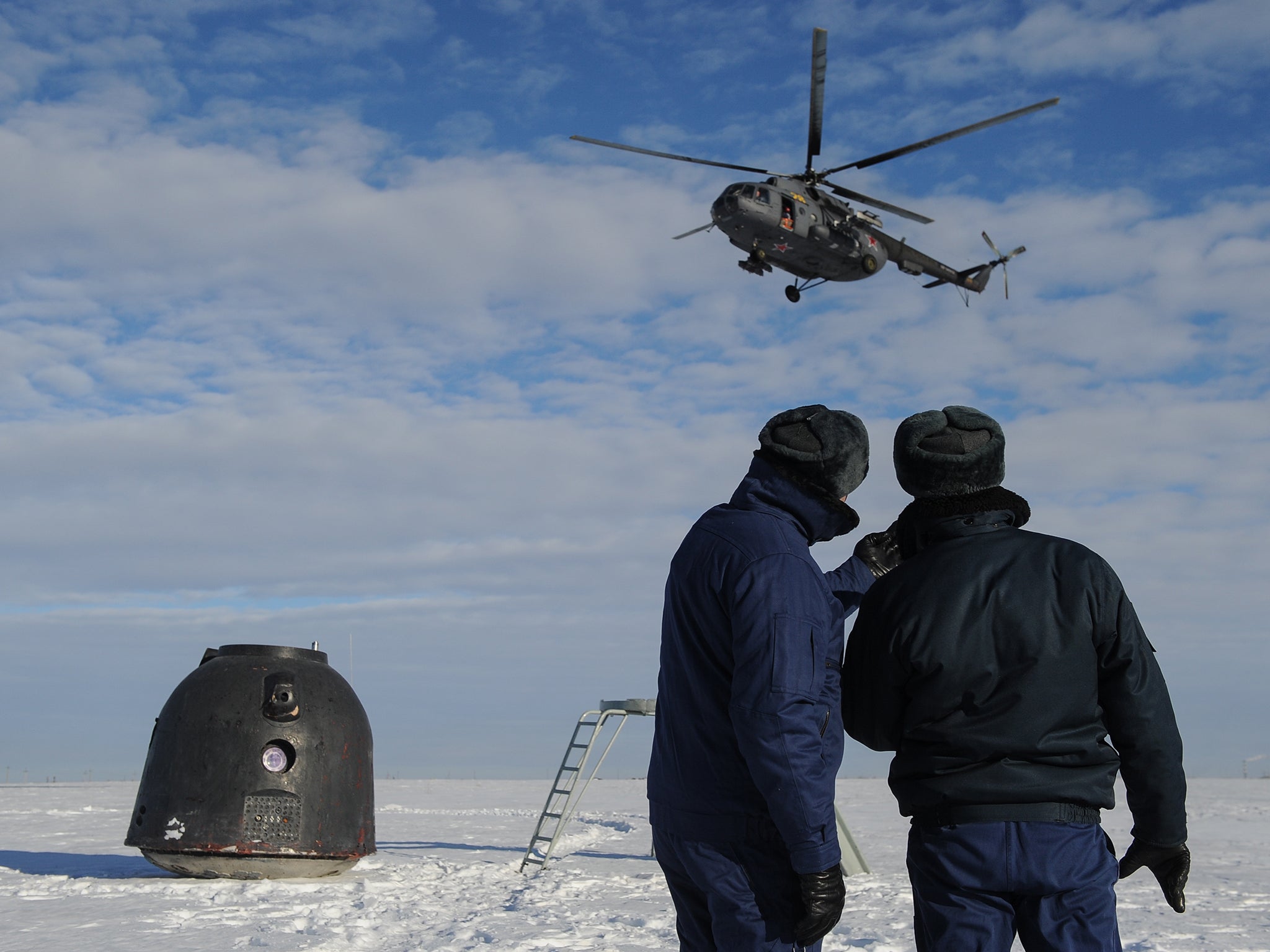British Antarctic researchers used to test effects of prolonged space travel
'The Antarctic allows us to simulate space flight without actually going into space'

Scientists in the Antarctic are to be trained in docking a Soyuz spacecraft onto the International Space Station as part of a series of spaceflight simulations designed to study the physical and psychological impact of a future manned mission to the Moon or Mars.
A team of researchers at the British Antarctic Survey will take part in dummy tests on a Soyuz flight simulator at the Halley Research Station this coming austral winter, which involves four months of 24-hour total darkness between May and August.
A deal between BAS and the European Space Agency will see 14 Antarctic researchers take part in training to make the approach and docking procedure on a Soyuz simulator to test how their skill and reactions change during the winter months of darkness and isolation.
“The Antarctic is an analogue environment for space flight. It allows us to simulate space flight without actually going into space,” said Nathalie Pattyn, the medical researcher seconded to oversee the project at Halley.
Stunning images of Antarctica
Show all 10“You have a small group of people who are isolated in a remote place where they can’t get out. In winter you aren’t able to evacuate quickly from here.” Dr Pattyn told The Independent by satellite phone.
“Just like a spacecraft or a space base on the Moon or Mars, we rely on a technical system for our life support. If there is a total power failure in winter we have to do something ourselves. We can’t just get out even if we needed to,” she said.
The European Space Agency is also running a series of space-flight experiments at the Franco-Italian Antarctic base at Dome Concordia, sited 3,200 metres above sea level on the high Antarctic plateau, which in terms of oxygen corresponds to an altitude of 3,800m at the equator.
Comparing the abilities of Antarctic researchers at the high altitude of Concordia with those operating at the sea level of Halley will enable the space agency to make a judgement as to which air pressure would best suit a space base on the Moon or Mars, Dr Pattyn said.
“There is a trade-off between the benefits of working under the high pressure of sea level and the engineering and technical costs of keeping a space base at those high pressures,” she said.
“We are also running other experiments making use of the austral summer, with its constant illumination; and the austral winter, with its constant darkness. This provides a unique natural laboratory to challenge the body’s reaction to light. One of these studies aims to test how the team’s eyes adapt to the prolonged period of darkness. Another one investigates how physical activity and the body clock regulation may alter sleep patterns,” Dr Pattyn explained.
“One of the other projects running over the next nine months will involve the team members recording themselves in a video diary. This will be analysed via an computer algorithm through parameters such as pitch or word choice, that will provide a new window to objective monitoring of psychological status, and thus adaptations to the stresses of prolonged space flight,” she added.
Jennifer Ngo-Anh, who leads the Mars500 project of the European Space Agency, said: “Offering Halley Research Station as an additional platform for European researchers will provide us with important data, experience and knowledge to prepare for future long-duration human missions to the Moon, Mars and beyond."
Subscribe to Independent Premium to bookmark this article
Want to bookmark your favourite articles and stories to read or reference later? Start your Independent Premium subscription today.

Join our commenting forum
Join thought-provoking conversations, follow other Independent readers and see their replies